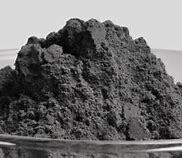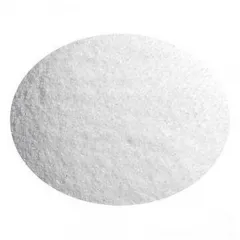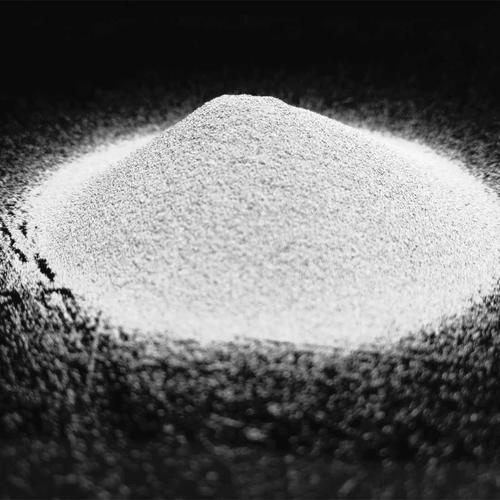1. Introduction
In the past 48 hours, additive manufacturing leaders have reported a surge in demand for high-purity spherical titanium powder, driven by new aerospace contracts and expanded medical implant production. This renewed interest highlights titanium powder’s critical role in advanced manufacturing—and raises questions about availability, cost, and technical specifications.

Whether you’re an engineer sourcing materials for 3D printing or a procurement specialist comparing titanium powder price per kg across global markets, understanding the full landscape of titanium powder is essential. From pure titanium powder to complex alloys like ti6al4v powder, this guide breaks down everything you need to know.
2. What Is Titanium Powder?
Titanium powder—often referred to as ti powder—is a fine particulate form of titanium metal. It can be produced in various morphologies (spherical, irregular, or angular) and purities, depending on the manufacturing method. Unlike bulk titanium, which is known for its strength-to-weight ratio and corrosion resistance, titanium powder unlocks unique capabilities in powder metallurgy and additive manufacturing.
Common types include:
- Pure titanium powder (Grade 1–4)
- Titanium alloy powder (e.g., Ti6Al4V or Ti64 powder)
- Specialty compounds like titanium nitride powder, titanium carbide powder, and titanium diboride powder (also called tib2 powder or titanium boride powder)
- Reactive forms such as tih2 powder (titanium hydride) and titanium flash powder
- Nano-scale variants like tio2 nano powder and titanium nanopowder
Note: While tio2 powder (titanium dioxide) is chemically related, it’s an oxide—not a metal—and used primarily in pigments, sunscreens, and coatings, not structural applications.
3. How Is Titanium Powder Made?
3.1 Gas Atomized Titanium Powder
Gas atomization is the gold standard for producing spherical titanium powder used in 3D printing. Molten titanium is disintegrated by high-pressure inert gas (usually argon), forming smooth, round particles ideal for consistent powder flow in laser-based additive manufacturing systems.

3.2 HDH Titanium Powder
The Hydride-Dehydride (HDH) process involves hydrogenating titanium sponge, milling it into powder, then removing the hydrogen under vacuum. HDH titanium powder is typically angular and less expensive than gas-atomized versions—but less suitable for high-end 3D printing due to poor flowability.
Other methods include plasma rotating electrode process (PREP) and electrolytic techniques, though these are less common commercially.
4. Key Applications of Titanium Powder
4.1 Titanium Powder for 3D Printing
Additive manufacturing has become the fastest-growing use case for titanium powder. Spherical titanium 3d printing powder—especially ti6al4v powder—is widely used to produce lightweight, high-strength components for aerospace, defense, and biomedical implants. The demand for titanium powder additive manufacturing continues to rise as industries seek design freedom and material efficiency.
4.2 Industrial and Chemical Uses
Beyond 3D printing, titanium powder uses span pyrotechnics (titanium flash powder), sintered parts, welding consumables, and even as a reducing agent in metallurgy. Titanium coated diamond powder enhances cutting tools, while burnt titanium powder coat refers to surface oxidation during high-temp processing—not a standard coating method.
5. Pricing and Market Trends

Titanium powder price varies significantly based on purity, particle size, morphology, and alloy composition. As of mid-2024:
- Pure titanium powder price ranges from $80 to $150 per kg
- Ti6al4v powder price typically falls between $150 and $300 per kg
- 3d printing titanium powder price commands a premium due to spherical shape and strict quality control
Factors influencing titanium powder cost include raw material (titanium sponge) availability, energy-intensive production, and certification requirements (e.g., ASTM standards). Always compare quotes from multiple titanium powder suppliers before deciding where to buy titanium powder.
6. Related Refractory Metal Powders
While titanium dominates lightweight high-performance applications, other refractory metal powders serve complementary roles:
- Molybdenum powder (moly powder): Used in high-temp furnaces, electronics, and as an alloying agent. Includes variants like molybdenum disulfide powder (mos2 powder), molybdenum carbide powder, and tzm powder.
- Tungsten powder (wolfram powder): Known for extreme density and melting point. Spherical tungsten powder and tungsten carbide powder are vital for wear-resistant tools, radiation shielding, and thermal spray coatings.
Suppliers often bundle offerings—so if you’re sourcing titanium powder for sale, you may also find molybdenum powder suppliers or tungsten powder suppliers through the same channels, such as Global Tungsten & Powders Corporation or specialized international titanium powder vendors.
7. Where to Buy and What to Consider
When looking to buy titanium powder, prioritize certified suppliers who provide material test reports (MTRs), particle size distribution data, and oxygen content specs. Reputable titanium powder suppliers ensure consistency for critical applications like medical implants or jet engines.
Also consider logistics: titanium dust is classified as combustible, so shipping regulations apply. Always verify whether the product is spherical titanium powder (for AM) or HDH titanium powder (for pressing/sintering).
8. Conclusion
Titanium powder is far more than just ground-up metal—it’s a gateway to next-generation manufacturing. Whether you need ti64 powder for aerospace 3D printing, tio2 nano powder for cosmetics, or are comparing titanium metal powder price against alternatives like molybdenum or tungsten powders, understanding the nuances ensures smarter sourcing and better performance. As additive manufacturing scales globally, expect continued innovation—and competition—in the titanium powder market.
Our Website founded on October 17, 2012, is a high-tech enterprise committed to the research and development, production, processing, sales and technical services of ceramic relative materials such as Titanium. Our products includes but not limited to Boron Carbide Ceramic Products, Boron Nitride Ceramic Products, Silicon Carbide Ceramic Products, Silicon Nitride Ceramic Products, Zirconium Dioxide Ceramic Products, etc. If you are interested, please feel free to contact us.
